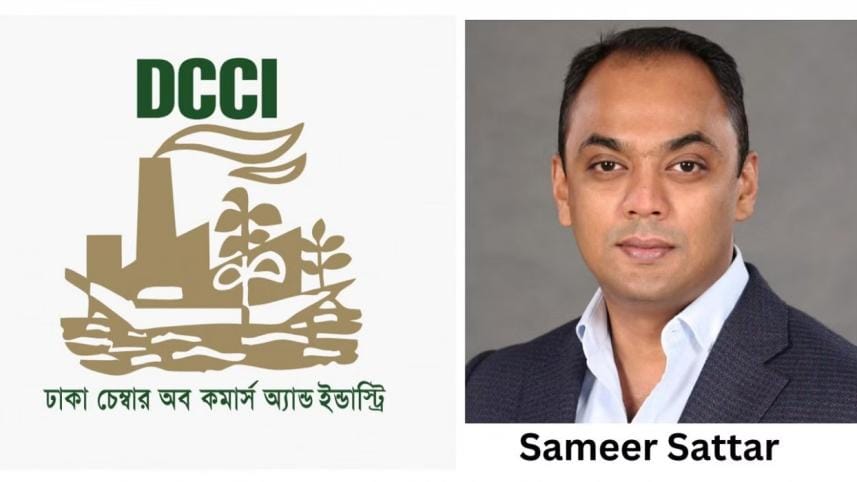Rationalise public sector borrowing to encourage private borrowing: DCCI

A contractionary monetary policy statement (MPS) for the first half of the 2023-24 fiscal year will help to revive the financial and private sectors, said Barrister Md Sameer Sattar, president of the Dhaka Chamber of Commerce & Industry (DCCI).
The MPS primarily aims to curb inflation by reducing the aggregate demand in the economy, continuing supply-side interventions and a stable and favourable business environment, he said.
The repo and reverse repo have been adjusted to 6.5 per cent and 4.5 per cent respectively to control inflation by reducing the money supply, Sattar said.
"However, the effectiveness of these instruments of controlling inflation is yet to be seen. Because reverse repo was raised earlier but inflation did not decline as expected."
The DCCI president made the comments in a press release in response to the monetary policy statement that Bangladesh Bank announced today for 2023-24 fiscal year.
The MPS showed that the lending rate cap of 9 per cent has been lifted. However, the lending rate will be determined based on a new policy termed as "Short-Term Moving Average Rate (SMART)", Sattar said.
As a result, the interest rate on bank loans may reach double-digit, which may trigger manifold challenges for the survival of businesses in the current volatile geo-economic situation as well as provoking inflation, he said.
Lifting the cap of lending rate and introducing the SMART policy may also increase the cost of doing business for cottage micro small and medium enterprises, the DCCI president said.
Regarding exchange rate stability, Sattar agreed that a unified exchange rate will stabilise the market.
However, strong monitoring should be in place by the Bangladesh Bank so that it is properly maintained.
"The reduction of ERQ encashment limit to 50% and increase of interest of EDF to 4.5% are necessary moves to mitigate the foreign exchange challenges. To enhance remittance inflow in the country, Bangladesh Bank needs to be very stringent to discourage the informal channel of inward remittance like Hundi."



 For all latest news, follow The Daily Star's Google News channel.
For all latest news, follow The Daily Star's Google News channel.
Comments